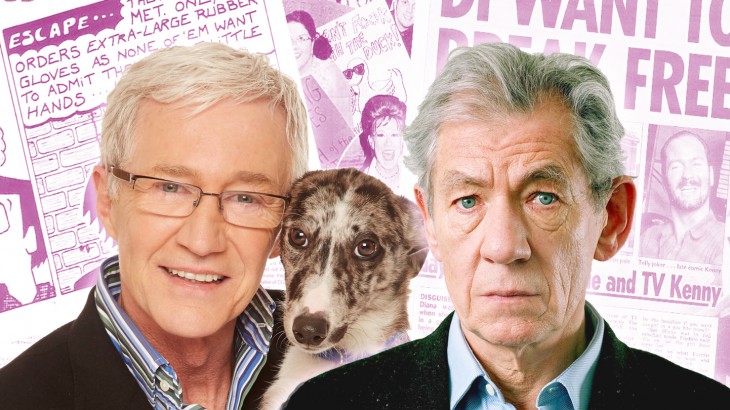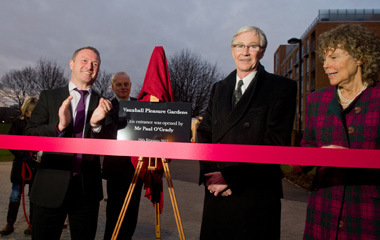Paul O’Grady and Sir Ian McKellen have given their support to RVT Future’s campaign to make the Royal Vauxhall Tavern a listed building.
They are among more than 30 performers, producers, local residents, LGBTQ charities, architects, historians and politicians who have written to Historic England (formerly English Heritage) to back the listing. The local vicar is on board too.
O’Grady developed his legendary character Lily Savage at the RVT during a long-running residency in the 80s. “I consider the venue to be my very own school of dramatic art,” he writes. During a turbulent era marked by homophobia, police raids and the AIDS crisis, “the Vauxhall Tavern was our village hall”.
O’Grady notes that following the closure of LGBTQ spaces across London, the RVT “is now one of the few remaining venues to showcase new and old talent every week”.
He believes the Tavern “should be offered protection to withstand today’s developers… Without listing the threat to its future is all too real. With listing I know the community will rally round and ensure it remains an important venue for many decades to come.”
Sir Ian McKellen has also written in support of the application, and says “I support the campaign to grant the Royal Vauxhall Tavern listed status”. McKellen was among the founders of Stonewall UK in 1989 and is himself co-owner of a listed pub, The Grapes in Limehouse.
The RVT was built on the former grounds of the Vauxhall pleasure gardens around 1862, and has been a site of LGBTQ community and culture since the 1950s, if not earlier.
It was bought last year by Austrian property development company Immovate, which has repeatedly declined to give details of their plans for the site or meet members of the RVT community.
Immovate opposes the listing, claiming it would make even minor repairs so expensive that it would have to close the Tavern. The company has not given any evidence to support this claim. Hundreds of London pubs and businesses operate successfully from listed buildings.
Others who have written to Historic England to support listing the RVT include:
Councillors David Amos, Vaila McClure & Joanne Simpson, the RVT’s ward councillors
*Penny Arcade, performer and activist
Professor Simon Atkinson, architect
*Neil Bartlett, author and playwright
Nick Boles MP, Minister for Skills
*Sarah Brown, charity executive
Chris Bryant MP, Shadow Secretary of State for culture
Professor Gavin Butt, performance researcher
Dr Ben Campkin, Director, UCL Urban Laboratory
Lord (Michael) Cashman, Labour worldwide LGBT special envoy
Professor Nigel Coates, architect
Lord Collins of Highbury (former General Secretary of the Labour Party)
Professor Matt Cook, historian of queer culture
David Coke FSA, historian of Vauxhall pleasure gardens
Dr Ross Davies, Chairman, Vauxhall Society
*Kate Hoey MP, Member for Vauxhall
Councillor Jack Hopkins, Lambeth Cabinet Member for Jobs and Growth
Professor Matt Houlbrook, historian of queer culture
James Hughes, Victorian Society
Ruth Hunt, Chief Executive, Stonewall
*Dr Dominic Johnson, performance researcher
Lois Keidan, Director, Live Art Development Agency
Revd Alison Kennedy, St Peter’s, Vauxhall
Munira Mirza, Deputy Mayor of London for Education and Culture
Dr Fernando Rihl, Vice Chair of local residents association and architect
Valerie Shawcross, London Assembly Member for Lambeth and Southwark
Tim Sigsworth, Chief Executive, Albert Kennedy Trust
Dr Catherine Silverstone, performance researcher
Lord Chris Smith of Finsbury (former Secretary of State for Culture, Media and Sport)
James Soane, architect
Jay Stewart, Director, Gendered Intelligence
Fiona Twycross, London Assembly Member
(* have appeared on the RVT stage)
Historic England makes its recommendations on listing to the Department for Culture, Media and Sport, which has ultimate authority over listing designations.
The result of the RVT application is expected at some point this summer.

